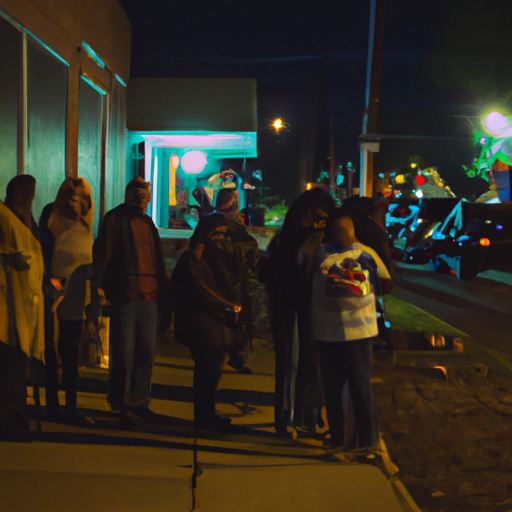The Ongoing Battle Against Toronto’s Opioid Crisis
In a recent CTV News article, it was reported that Toronto is experiencing a significant and worrying increase in drug toxicity incidents, exceptionally related to opioids. Today we’ll delve deeper and discuss the implications of this report, the effects of the opioid crisis on local communities, and what is being done to combat this issue.
The Alarming Statistics
The opioid crisis in Toronto and across Canada continues to surge, as we witness a stark surge in overdoses. Toronto Public Health (TPH) has raised alarms noting that in a span of just four days Toronto saw 30 suspected opioid overdoses. This, they assert, is clear evidence of a drug toxicity crisis.
What Are the Effects of This Crisis?
Unfortunately, the list of harms caused by the opioid crisis is long. Let’s organize some of the key concerns:
- Increased mortality rates among drug users
- A rise in crime rates related to illicit drug trade
- All-encompassing healthcare system burden related to combating overdoses
- The personal trauma of addiction and the strain it places on families and loved ones
A Closer Look at the Homeless Population
The homeless community is notably harmed by this crisis. The precarious circumstances of individuals without stable housing are only compounded by the risk and stigma of drug use. Too often, this community lacks adequate support, leaving many trapped in a damaging cycle of addiction.
Efforts to Combat the Opioid Crisis
Despite the severity of the situation, efforts are underway to combat the crisis – medically, socially, and legally.
Naloxone: The Antidote for Overdoses
First on the medical front – Naloxone, a fast-acting opioid antagonist, is used as an emergency treatment for opioid overdoses. It effectively reverses the life-threatening respiratory depression that accompanies an overdose. Distribution of this antidote is one of TPH’s key strategies to combat overdose fatalities.
Social Support and Addiction Rehabilitation
From a social standpoint, there has been a push for better addiction treatment and recovery support to help those struggling with addiction. Opioid addiction is a chronic condition that requires long-term, comprehensive treatment plans. It breaks the cycle of addiction and aids reintegration into a drug-free life.
The Opioid Class Action
And finally, on the legal front – Governments across Canada have filed lawsuits against several opioid manufacturers in a consolidated, opioid class action lawsuit. The aim is to hold these corporations accountable for their alleged role in fostering the opioid crisis, insisting they downplayed the addictive properties of these drugs.
Every Effort Counts
While these efforts are positive strides, more work is needed to effectively combat the opioid crisis. More investment is required in addiction treatment programmes, affordable housing, and harm reduction services. Furthermore, greenlighting safe consumption sites and increasing public education about drug use are necessary to curb this crisis.
Concluding Thoughts
In closing, the opioid crisis is a multi-faceted issue that demands a thoughtful, concerted, and multidimensional approach. The bottom line is that each overdose death is preventable. From political will to monetary allocation to effective rehabilitation measures, every effort counts in this battle.
From this recent news, one thing is clear: The crisis rages on. But so does our fight to end it. Let’s continue to discuss, educate, and advocate for people caught in the throes of addiction. Here’s hoping that as the opioid class action proceeds and more resources are invested in treatment and prevention, we will see a reduction in the harms caused by this crisis.
Remember: every conversation, every shared article, every show of support matters. It’s up to us to change the narrative around the opioid crisis, reducing stigma and creating a society that supports recovery, not ridicules it.


